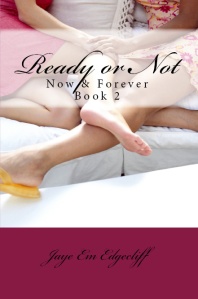I’ve commented on this quite a lot myself.
I don’t believe that a great many bits of “self-publishing wisdom” are anything but nonsense.
I’ll admit, I’ve a photographic memory, so I don’t have to hear of something multiple times to remember it. And hearing about something multiple times doesn’t make me read it. I’ve heard of Name of the Wind several times. My wife has a copy and has informed me repeatedly that I really ought to read it. I haven’t yet. I intend to because aspects and quotes from it seem interesting, and I’ve found Pat Rothfuss to have a rather charming and engaging way with words that I hope translates into his fiction (not everyone’s does; I rather like John Scalzi‘s blogposts more than his fiction, for example).
I strongly suspect that, in reality, most people select a book because
A) Someone whose tastes in books they respect recommends it. This is why I read about half of what my wife recommends to me: she has peculiar tastes that sometimes overlap mine. I give her time to tell me enough about them first. I don’t know why she so rarely reads what I recommend as she is wont to loving anything I finally convince her to.
B) They notice it because it’s interesting looking. AKA: Browsing. Neat cover art, catchy title, whatever. It calls to them. I suspect that, unless the person has disposable income to actually impulse by us$10+ that this works better in libraries, or bookstores conducive to sitting down and finding out if you like a book first (yay ebooks and the sample thing!!)
C) They saw the movie/tv series. Hey, it’s why I read Game of Thrones. Now, I need to get around to reading the second book … though it’s been a few years since I read the first or watched the first season … as in … did I ever watch series 4? I know I haven’t 5 and 6 and what are they on now? It was back then I read it.
D) They love the author. I love Terry Pratchett and search for his books when I’m eager for something to read. I have other authors with books I love that I approach with caution because they have books I do not love. Spider Robinson, J R R Tolkien (I really don’t like LotR that much, except for Fellowship of the Ring), and others.
E) I forget. I’ve been ill and my head aches so I’m going to just stop writing, format this, and go have some coffee. Don’t forget to read Ms Haddock’s blogpost which inspired this, excerpt is below and there is linkage to the rest … which is about 3-5x the excerpt … no, seriously, it’s a little long.
What I’ve Been Reading And How It Disproves Some Common Self-Pubbing Wisdom
(Damn, am I good at short and pithy titles or what?)
Long story short, I live in a place that is not exactly conducive to either reading or writing. To somewhat mitigate the negative effect this has on my sanity, I’ve been spending a couple of afternoons a week at the library.
Now, was my OCD still completely out of control, I have no doubt what I’d be doing is working my way through my over 1400 book long “to read” list on Goodreads. Since my OCD is more-or-less managed right now though, instead I’ve been wandering pretty aimlessly through the library and reading whatever grabs my interest at the time.
So, here’s a list of books I’ve either read or at least read a significant portion of in the past few weeks (There’ve been others I’ve tossed aside after a chapter, usually non-fiction that was blatantly stupid or dry enough that the subject matter would have to be something I found very interesting for me to push past it to read the damned thing.) (Goodreads links included, in case any of my readers may wish to find out more about any of these.):
Source: What I’ve Been Reading And How It Disproves Some Common Self-Pubbing Wisdom
Related articles
- What Are the Best-Selling Fantasy Books and Series of All Time? (thoughtsonfantasy.com)
- Lucky, per Pratchett (Inspiration) (catherinekanewrites.wordpress.com)
- Eye Candy du jour. (qcassetti.com)
- CFP: Tolkien and Jackson Fan Studies Special Issue (fanstudies.org)
- [Books] The Long War (geeky-guide.com)

 Ready or Not is now on sale!
Ready or Not is now on sale!



